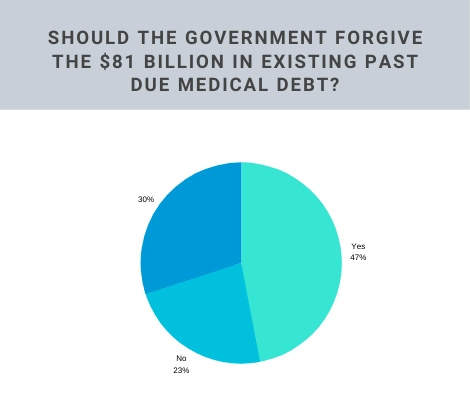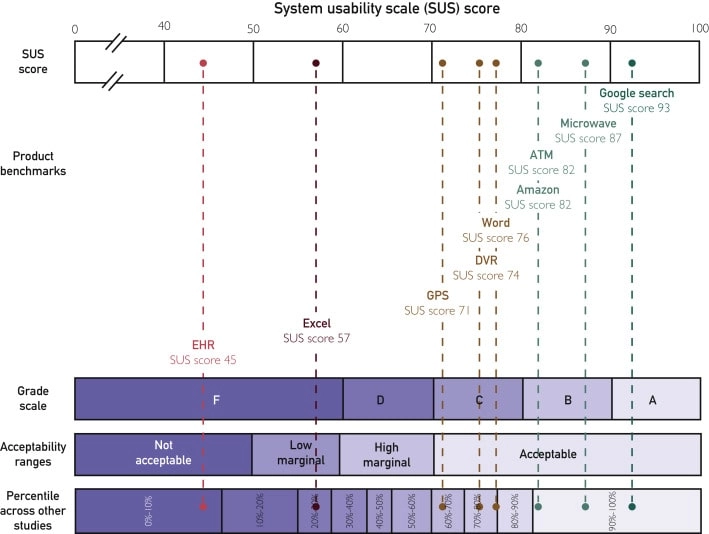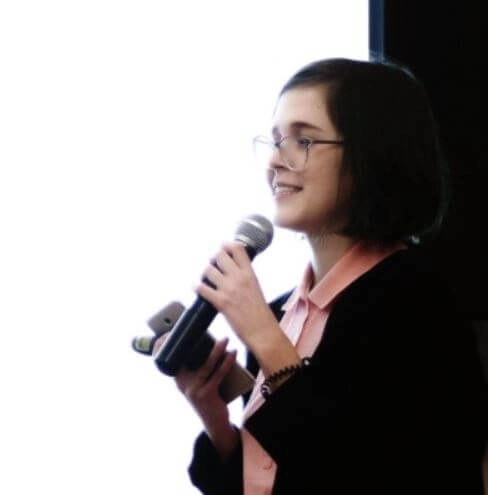

Digital healthcare digest — November 2019
The digital health industry grows astonishingly, — and regularly, we’re picking up for you the most attention-worthy news of each month. We’re also filming weekly reviews on our YouTube channel.
December has started already, and we haven’t concluded November’s happenings in tech healthcare yet—so let’s fix that.
Digital healthcare market news (acquisitions, collaborations, market reports)
Healthcare satellite connectivity will expand greatly by 2025, moving accessibility and availability of healthcare services forward and reducing the wait time for those who want to get them.
American Well, a telehealth giant, acquires Aligned Telehealth, a vendor that provides telepsychiatry and behavioral health services. Together, they hope to achieve better mental health treatment and, on the larger scale, re-imagine the definition of telehealth.
Scandit, a mobile computer vision- and AR tech provider, integrates with Rover, Epic’s iOS app for clinicians. With Scandit, hospitals would be able to replace dedicated scanners for barcodes on meds, equipment, lab samples, and significantly save time & cost.
Swiss pharma company Novatis collaborated with Finnish Popit (releases solution for patient engagement and meds adherence) and Precordior (detects heart diseases through smartphone sensors). Main emphasis of both collaborations is “right treatment at the right time.”
Biofourmis, creators of AI-enabled monitoring and CDC platform, plans to acquire Biovotion, Switzerland-based wearable biosensor company. The deal will include Biovotion’s wearable Everion, company’s portfolio, pipeline, team, clients, etc; Biofourmis plan to combine wearables with analytical platform.
Healthcare predictive analytics market is predicted to reach more than $22 million by 2026. Growth will be supported by an increase in database volume, digital health investments, and widespread adoption of EHR and may be hindered by lack of talent and stakeholders’ reluctance.
Tech giants in digital healthcare
Apple and Veteran Affairs complete rollout of Apple Health Records from more than 1200 facilities to iOS devices that belong to the USA veterans (and veterans of surrounding countries). The resulting app works as mobile interoperable EHR.
Also, in November Apple released its Research app for iPhones and Apple Watches. Those who are willing can participate in three studies, each with dedicated app of their own.
Amazon launches Alexa feature that will remind customers to take their meds and order refills.
November funding in healthcare startups
Medopad, an AI-driven biometric data collection & analysis tool for healthcare predictive analytics lands $25 million in Series B.
PathAI, a company that uses AI-powered tech to improve pathology research, gets $75 million in Series B.
Remise, a startup that aims to help users stop using meds for better night sleeps through sleep trackers and personalized recs and sleep-improving herbals, raises $8.2 million.
Scanwell secures $3.5 million in seed funding. They develop FDA-approved kits for home UTI test kits and smartphone-based platform for screening. Also, Scanwell’s products will be available nationally thanks to the company's collaboration with Lemonaid Health, a telehealth service.
Rightway Healthcare, health navigation platform, scores $20 million in Series B.
AiCure’s AI-driven interactive medical assistant (or IMA) that measures meds adherence and tracks other behaviours during care process or clinical trials, lands $24.5 million in Series C.
Wellframe, a platform for patient engagement and care management, secures $20 million in Series C.
Singapore-based Lucence, who develop non-invasive blood tests for early cancer detection and treatment decision support, gets $20 million in Series A.
Mojo, a fertility startup that wants to make fertility treatment more affordable and accessible through AI and robotics, lands €1.7 million in seed funding.
Mon Ami, solution that connects seniors and college students-caregivers, gets $3.5 million.
Peerbrige, a startup that offers a wireless chest wearable for continuous cardiac monitoring, gets $11 million in funding. Their FDA-cleared patch can be used in clinical settings and even covered by some insurers.
Winterlight Labs that develop a tablet-based solution driven by speech-based AI scored $4.23 million in funding. Company aims to detect signs of cognitive decline by vocal biomarkers.
Nines, a tele-radiology and AI-powered startup, gets $16.5 million in Series A and launches its software platform that aims to help radiologists to prioritize conclusions from the tests images and make the right decisions.
Data, privacy and regulations in digital healthcare
WellDoc’s Bluestar gets FDA clearance. It’s a platform for Type 1 diabetes management, the first mobile solution that has insurance coverage.
Ultromics gets FDA clearance for their ultrasound-based heart scan analysis system called EchoGo Core.
HITRUST Adds California Privacy Act Stardarts to Security Framework. Standard will help providers measure CCPA compliance and understand if their patients’ data are really private or there are gaps.
The University of Rochester Medical Center pays $3 million settlement for HIPAA privacy and security rule violations.
According to Black Book Research, healthcare will pay $4 billion for data breaches in 2019.
Health Affairs’ report says despite the hospitals made patients’ data accessible for them, fewer than 1 in 10 actually accessed them. Report concludes policy’s failure to engage patients in the “electronic use of their data.”
On the contrary, Ciitizen’s Patient Record Scorecard shows: despite HIPAA’s requirement for easy access to patients’ data, it’s not easy for them at all.
Ransomware attack on Virtual Care Provider, a software vendor that supports 1100 nursing homes and acute care sites, results in a major disruption in healthcare.
Digital health success use cases
At Integris Health, VisitPay technology helps provides and users to make payment for healthcare services easier. Launched in the end of June, platform processed more than $1 million in payments— that’s 28% of all patient collections. Patient as a payer era seems to begin!
Dartford and Gravesham NHS Trust used at-home wearable Current Health. Tracking patients’ vital signs in hospitals, devices send alerts nurses about those in an immediate need—this saved a fifth of nurses’ time.
Telehealth platform, employed in Rochester’s Mayo Clinics helps treat newborns better, allowing neonatal transport team to be there in time when a newborn needs to be stabilized.
Children with access to school-based telehealth program are 27% less likely to go to the ED for their asthma.
More than 50% of Benefits Health System patients use online booking after hours. Which speaks volumes about the necessity of online scheduling tech.
Sentara Health employed biometric solution to identify patients easier&quicker (and when they are unable to talk or non-verbal). The solution called PatientSecure, developed by Imprivata, was integrated with Sentara’s EHR.
Horrors of clinicians' handwriting are dispelled by employing Evodent’s Physical Notes tech for smart, clear, and even templated— on demand— documentation in the ED.
Catawba Valley Medical Center employed Backline in their Meditech EHR to accelerate ED-to-bed admissions, and managed to reduce wait time by 97 minutes.
More than 900,000 veterans used VA Video Connect telehealth app in 2019—that’s 17% higher than in 2018.
Research on digital healthcare and its state
Lenovo’s research shows: 84% of consumers think technology can help people and providers to solve healthcare challenges; the majority also agrees technology make their lifestyle healthier.
Statistics on medical debt in the USA in 2019. Not very enjoyable, but sobering.

KLAS report says high satisfaction with EHR system in doctors correlates with high-quality training. Shout out to L&D teams!
Another Black Book survey shows that 1 in 5 of post-acute facilities has negative margins for five years or longer — and there’s no fund for tech improvements. Under half of all stated their staff’s IT proficiency is very poor or non-existent.
Livongo ran study that showed: after 12 weeks of Livongo’s testing and coaching, people with hypertension experienced significant decrease in systolic and diastolic blood pressures.
Public health issue of rising antibiotic resistance could be fixed through digital health.
Report shows: Humana’s Medicare Advantage plan save health system money — they reduce costs by $3.5 million, compared to original Medicare.
American Medical Association suggests that adding prescription drug prices in EHRs may improve transparency in healthcare payments and restrain physicians in terms of what tests to choose.
Mayo Clinic study finds connection between EHR poor usability and clinician burnout. EHR’s system usability scale (SUS) appeared to be “not acceptable,” and the higher it gets, the higher rates of burnout, including symptoms such as depersonalization and emotional exhaustion, were.

A wearable cuff that measures, tracks and trends blood pressure was shown at London Amazon Alexa event; the device is developed by OMRON Healthcare and called EVOLV.
Apple deletes out 181 apps that were related to vaping due to the growing number of vaping-related death and injuries in the USA from the App Store.
AI technology that uses deep learning could help cardiologists to predict atrial fibrillation before it develops, according to Geisinger researchers.
Healthcare predictive analytics market is predicted to reach more than $22 million by 2026. Growth will be supported by an increase in database volume, digital health investments, and widespread adoption of EHR and may be hindered by lack of talent and stakeholders’ reluctance.
Launches, planned launches, new features
Nightingale health launched a customer blood testing service (My Nightingale) as a part of predictive/preventive platform for chronic disease management.
Deloitte launches digital suit CovergeHEALTH Connect with products for patient engagement, public health, providers and payers running on the Salesforce Health Cloud.
Ada Health expands in East Africa, adding a Suahily version of their app. Ada app is a digital health companion, driven by AI.
Singapore researchers and tech startup called Neero will collaborate to help children with ADHD to improve their attention span at home. Children will receive a kit with Neeuro’s SenzeBand device that reads brain waves and a tablet with preloaded CogoLand, developed by clinicians.
Alcidion launches first (!) mobile (!) EMR (!). In Australia.
DarioHealth get their mobile-friendly kit for diabetes management into retail stores. It will cost $69.99 on BestBuy.
Elektra Labs launches Atlas, a solution which will catalog all biometric monitoring devices — digital therapeutics, — on the consumer-facing health market.
Mount Sinai Health System received $2 million grant from the government to build new supercomputer. It will be essential in biomedical scientific discovery.
Intermountain Primary Children’s Hospitals, University of Utah Health, and Intermountain Precision Genomics will open a pediatric center for personalized medicine.
Other digital healthcare news
Now, Ucla mobile surgical lab that is developed by Winnebago is zero-emission, powered by electricity only.
Kenya successfully tested biometric system for identifying people with HIV.
What to read on digital healthcare 2019
How NASA uses the ISS environment to figure out a health tech kit needed for a journey to Mars.
How clinical research community’s comments and reflects on digital clinical trial challenges, benefits, and changes. Plus, the announcement of Johnson & Johnson's “decentralized, mobile, indication-seeking clinical study.”
First and second reads on Google data and privacy issues, because we couldn’t help ourselves. Read while listening to the sounds of Fitbit acquisition.
Best practices on working with clinical decision support solutions and choosing one. Recommended for CIO, CMIO, and other health IT specialists.
Tell us about your project
Fill out the form or contact us

Tell us about your project
Thank you
Your submission is received and we will contact you soon
Follow us

